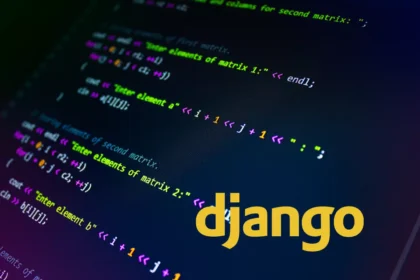Django is a powerful and flexible web framework for building dynamic web applications. Developed and maintained by the Django Software Foundation, it is written in Python and follows the Model-View-Controller (MVC) architectural pattern.
One of the key features of Django is its emphasis on reusability and “pluggability” of components. This allows developers to easily reuse common elements, such as user authentication and database models, across different projects. This can greatly speed up the development process and make it easier to maintain and scale the application.
Django also includes a built-in administrative interface, which allows non-technical users to manage the content and functionality of the website without needing to understand the underlying code. This can be especially useful for content-heavy sites, such as news sites or e-commerce platforms.
Another feature of Django is its robust security features. It includes built-in protection against common web application vulnerabilities, such as SQL injection and cross-site scripting (XSS) attacks. It also has a user authentication system that can be easily configured to meet the specific needs of the application.
Django’s support for database migration is also quite helpful. It allows developers to make changes to the database schema without having to manually update the data stored in the database. This can be especially useful for large and complex applications that need to be updated frequently.
Overall, Django is a powerful and flexible web framework that can be used to build a wide variety of web applications. Its emphasis on reusability, administrative interface, security, and database migration make it a popular choice among developers.
One of the most popular and well-known sites built with Django is the Disqus. Disqus is a blog comment hosting service for web sites and online communities that uses a networked platform. The service, which is owned by Disqus, Inc., is built on the Django framework.
Another example is Instagram. Instagram used Django as its web framework when it was first built, it’s now using other frameworks and technologies but it’s still using some of the Django’s component like ORM(Object-Relational Mapping) in its backend.
In conclusion, Django is a powerful web framework that can be used to build a wide variety of web applications. Its emphasis on reusability, administrative interface, security, and database migration make it a popular choice among developers. With the support of a large and active community, developers can easily find solutions to any problems they may encounter while building their applications.











